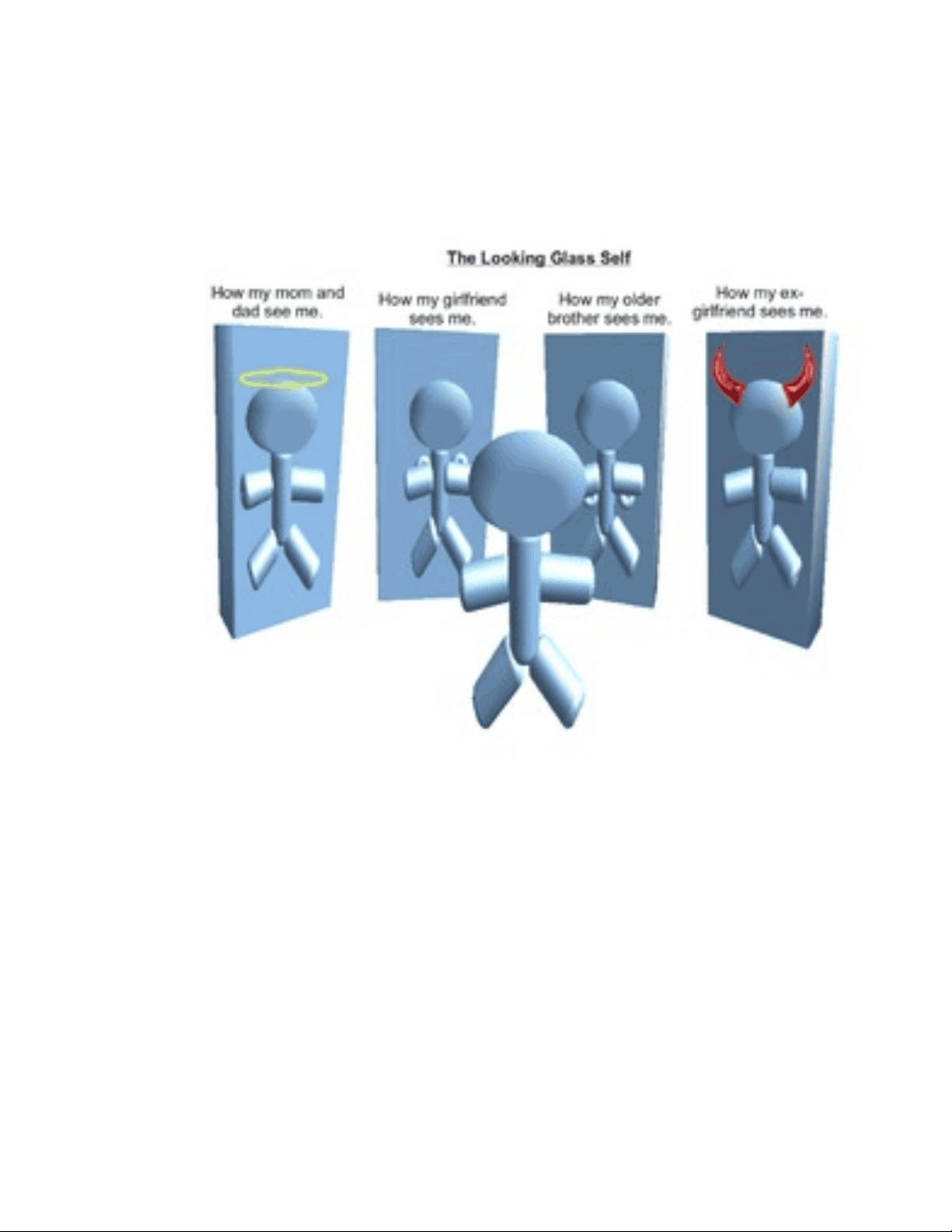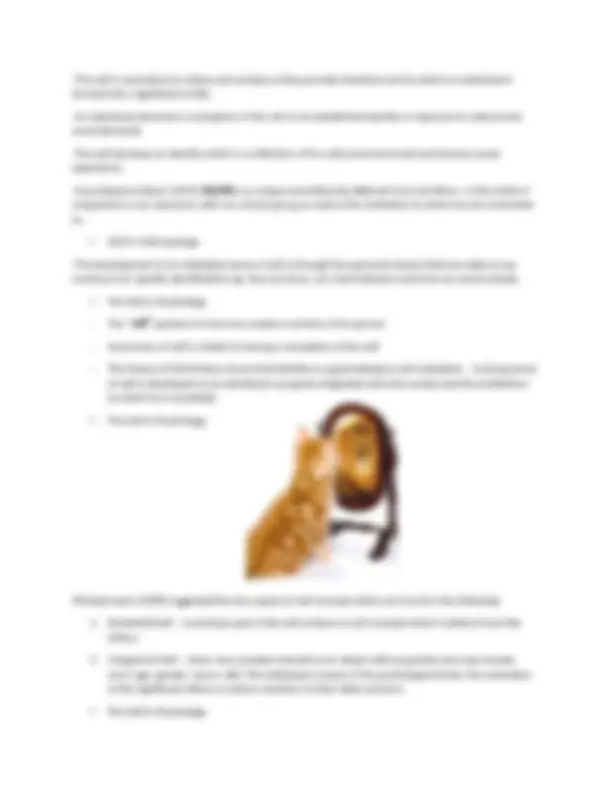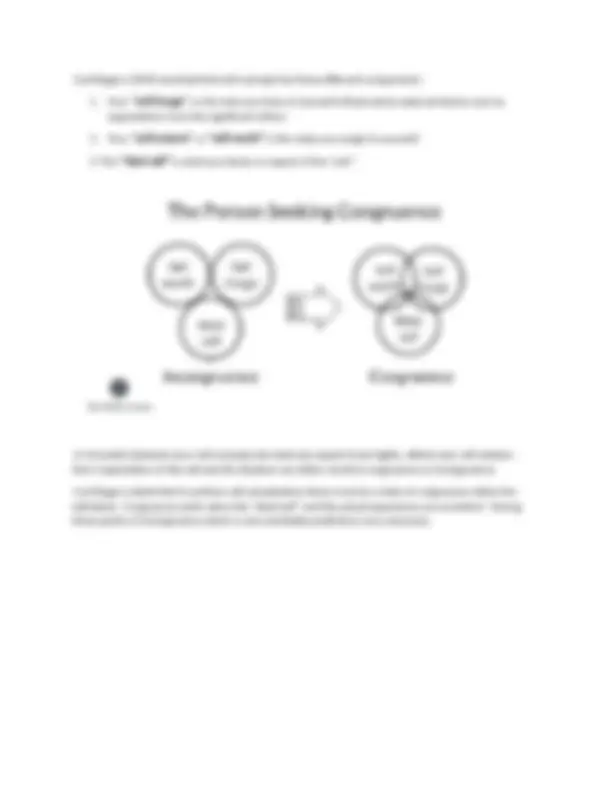




Study with the several resources on Docsity

Earn points by helping other students or get them with a premium plan


Prepare for your exams
Study with the several resources on Docsity

Earn points to download
Earn points by helping other students or get them with a premium plan
Community
Ask the community for help and clear up your study doubts
Discover the best universities in your country according to Docsity users
Free resources
Download our free guides on studying techniques, anxiety management strategies, and thesis advice from Docsity tutors
The concept of self-concept in the allied sciences of sociology, anthropology, and psychology. In sociology, self-concept is defined as the presence of the larger society and significant others in understanding the genuine nature of the self. In anthropology, self-concept is a product of cultural practices and social experiences. In psychology, self-concept is how one creates a schema of their person, with awareness of self and the goal of self-realization. Various theories and components of self-concept in each discipline.
What you will learn
Typology: Slides
1 / 4

This page cannot be seen from the preview
Don't miss anything!



-According to Gecas and Burke (1995) the self is composed of various identities, attitudes, beliefs, values, motives, and experiences with respect to their communities and the institution to which they belong.
-Carl Rogers (1959) asserted that self-concept has three different components: